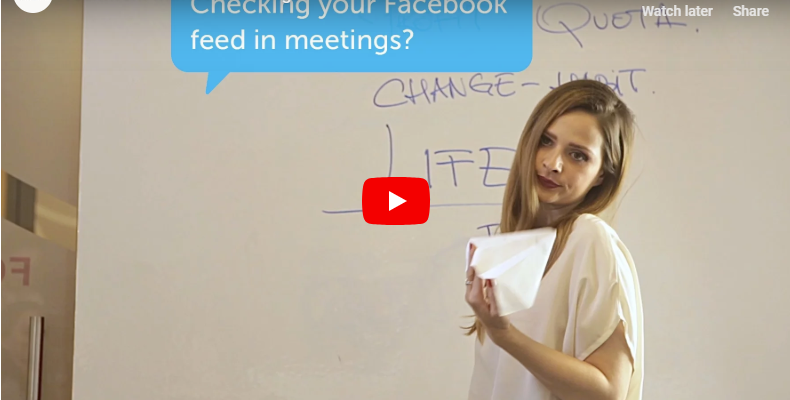Productivity and being productive. It’s a modern issue. Ideas come and go. They’re a dime a dozen. Having the idea is only 1 percent of the issue. Putting the work in, that’s an entirely different matter. Getting your team to be maximally productive, even more so. It’s tougher than ever to get everything done
Posts Tagged Under: meetings
Meetings are about to die. Particularly since collaborative work has become the staple of modern office life, they are about to die. And after they die, they will move somewhere better, virtual. Somewhere in the cloud, or in a special bundle of apps. But don’t get your hopes up high yet.
After all, there have been attempts to put new life into meetings. Some preach against inherent inefficacies. “Make meetings purposeful”, they say. Others are deluding themselves that theater methods will do. So “treat your meetings like an improv session”, they say. Seems like everyone thinks that “The Office” is a documentary. That we should all turn Michael Scott and do some improv.

Conflicts at work are something we often deal with, as positive and agreeable as we might be, but that’s not necessarily bad. A constructive work conflict is even a desirable condition to every productive team because it leads to more valuable solutions. As a leader, you should encourage them. However, sometimes these disagreements go beyond the constructive line and become a damaging factor in your team.

Photo by JD Mason on Unsplash
People work harder if they know compensation is waiting for them at the end of the line. Yet, studies show that shortly after getting a financial incentive, actually in less than a week, people lose their motivation and their energy levels go down. Financial compensation is a two-edged sword, and should not stand as the only motivator. Truth be told, meaningfulness and recognition matter more. People want to be recognized for their efforts. They need to know if and how they’ve contributed to the team’s success. And they can only find out, if they receive feedback. Regularly, honestly, and with care.
In any process, team or business, feedback is many things. A necessary ritual, a moment of truth, a condition to progress, and sometimes a dreadful experience. This article explains the why, when, and how of giving and receiving feedback. Because, whether we like it or not, people need to know that their work matters, that it has meaning.

Photo by José Alejandro Cuffia on Unsplash
Imagine yourself going in all those every-day meetings. It’s supposed to start at 1 PM and somewhere around 1:10 everyone is finally in. Someone is trying to make the projector work. The presenter is searching through her files for the presentation. Everyone else is checking their email, social media or just chatting on their phone. The meeting is finally starting with a quick intro from the presenter. Half of the audience is still typing frenetically on their phone or laptop. Sounds familiar? Probably that’s because inefficient meetings are far more popular than we’d like to think. But there’s a cure for this epidemic of bad meetings and I’m here to share some solutions with you.
Photo by rawpixel on Unsplash
Instead of showing up for every meeting invitation we get, how about we try a new gimmick and decline some of the invitations? But how to choose which meeting to attend and which to avoid? I looked for the most obvious signs of an unproductive meeting and here’s what I found.
One Harvard Business Review report
In a recent blog entry, we touted collaboration as the key to a better world. We based it on the research of one John Velez, Assistant Professor at the College of Media & Communication, who discovered that co-op gaming improves social behavior. But while collaboration betters the world in general, it’s not necessarily the recipe for better marketing.





